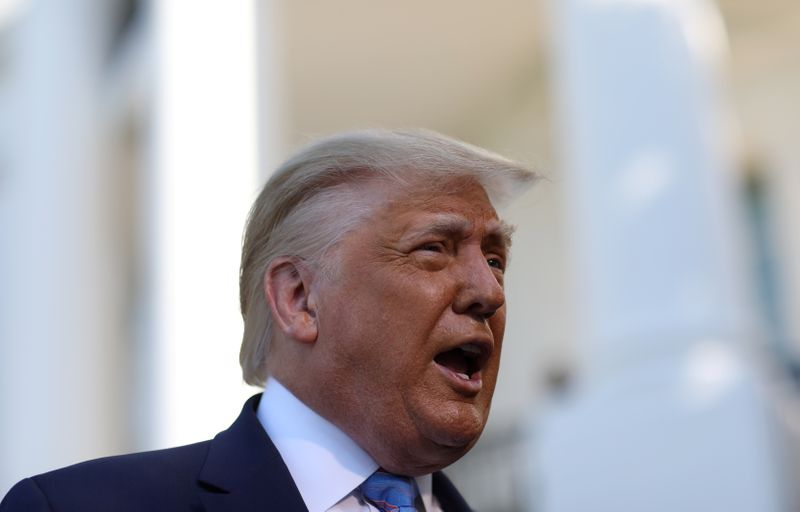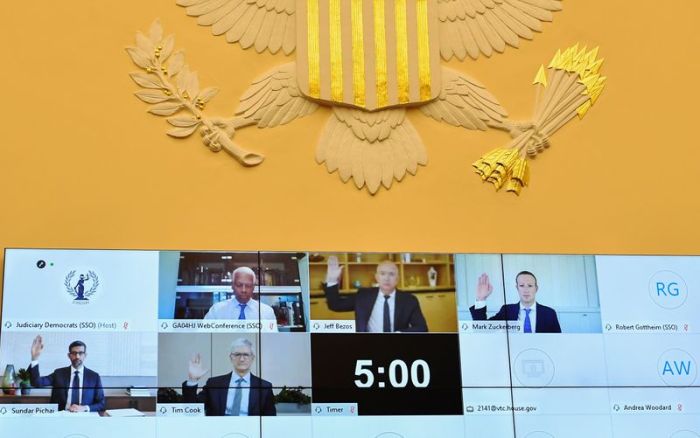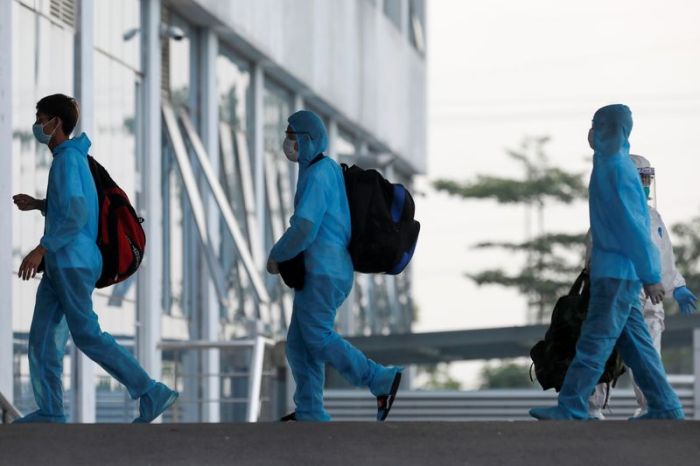WASHINGTON (Reuters) – U.S. President Donald Trump on Wednesday defended his push to use a coronavirus relief package to fund a new FBI headquarters near his Washington hotel despite opposition from fellow Republicans, citing his background as a real estate developer.
The bill, facing tense negotiations in the Senate before multiple provisions aimed at helping Americans stave off financial losses amid the coronavirus pandemic expire on Friday, is on shaky ground with the White House at odds with both Democrats and Trump’s own Republicans, who control the chamber.
Trump at first did not directly answer a question about whether he would drop his demand for $1.8 billion to fund a new FBI headquarters in downtown Washington one block from Trump International Hotel. He later said the provision “should stay.”
“Republicans should go back to school and learn,” he told reporters at the White House. “I’m very good at real estate.”
Senate Majority Leader Mitch McConnell earlier this week referred questions on the provision to the White House. Some Democratic lawmakers have balked at its inclusion.
The Trump administration’s abrupt reversal of a years-long plan to relocate the FBI’s main office from the heart of the nation’s capital to the surrounding suburbs has drawn scrutiny since Trump scuttled the move in late 2017.
Democrats and other critics have accused Trump of seeking to prevent the sale of the site to a private developer and possible competitor. The matter is currently under review by the Department of Justice.
Trump, who still owns his company but has said his sons run its day-to-day operations, became disqualified from buying the FBI site when he became president in 2017.
“The funding rider for FBI’s HQ is a big deal,” Walter Shaub, the former head of the U.S. Office of Government Ethics, tweeted, adding that it “reinforced suspicion Trump canceled the long-planned HQ move to prevent competition from moving in across the street from his hotel.”
(Reporting by Alexandra Alper; Writing by Susan Heavey; Editing by Scott Malone and Jonathan Oatis)

























